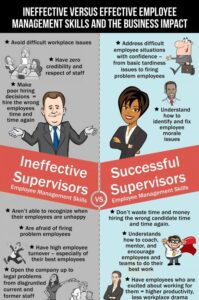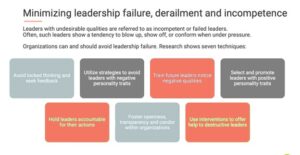Gritty Practical Leadership Book Five Star Review Try It on Amazon
Real Leadership Without the Gloss — Lessons That Last –Book Review Introduction Most leadership books fall into one of


In the dynamic and fast-paced work environments of today, a strong workplace culture is essential to worker happiness and output. Leaders and managers who mold their colleagues’ daily experiences are at the center of this culture. But not every employer creates a happy environment. Creating a positive work environment requires recognizing and dealing with incompetent managers. This article discusses how to spot ineffective leadership and provides helpful solutions for these problems.
An incompetent manager can have a big effect on the workplace, affecting morale among staff members, output, and general job satisfaction. Ineffective leadership can be characterized by a lack of vision, poor communication, micromanagement, and a failure to encourage or reward staff members. The consequences are typically dire, resulting in low team performance, high turnover rates, and disgruntled workers.
Inadequate Ability to Communicate Bosses who lack effectiveness frequently have communication issues, which cause misunderstandings and uncertainty. They can issue ambiguous directions, neglect to provide frequent feedback, or ignore concerns raised by staff members. Employee engagement and team performance may suffer from this ambiguity.
Micromanaging supervisors undermine employee autonomy and stifle innovation by attempting to oversee every aspect of their team’s work. This method not only makes workers less motivated, but it also shows a lack of faith in their talents.
A manager who lacks a clear vision or strategic direction risks creating a sense of aimlessness and demotivation among their staff. A clear sense of purpose and a road map for success are provided by effective leaders to their teams.
An unfavorable work environment can be brought about by partiality and uneven rule enforcement. Workers must believe that choices and performance reviews are made on the basis of merit, and that they are treated equally and fairly.
An incompetent manager frequently overlooks chances for staff members to advance and develop. They cannot offer helpful criticism or fail to encourage career progression, which might impede workers’ professional development and create a stale work atmosphere.

Discuss your difficulties with your supervisor in an honest and transparent manner. Adopt a solution-focused approach to the discussion by providing concrete instances of problems and outlining prospective fixes. Bosses can change if they recognize the consequences of their ineffective behavior, even though they may not always be aware of it.
It can be helpful to keep thorough records of all the times that poor leadership has occurred, particularly if problems need to be brought up with HR or upper management. Keeping track of individual occurrences, together with the dates and effects they had on work, offers a rationale for resolving issues.
Ask for regular feedback and clarity on your performance and expectations if communication is a difficulty. Even though the instructions aren’t always clear, being proactive will help you better understand your boss’s expectations and adjust your job accordingly.
Develop good working relationships with coworkers and other organization executives. Creating a network of support can offer more viewpoints and tools for dealing with leadership difficulties. Working together with others can also contribute to the development of a more encouraging workplace.
When you talk to your supervisor about difficulties, don’t just point them out; instead, try to discover solutions. Provide helpful criticism and make recommendations for doable actions that could make things better. This strategy can inspire your supervisor to adopt a more cooperative mindset while also showcasing your dedication to a happy workplace.
Consider engaging Human Resources if feedback and direct communication are ineffective in resolving the difficulties. HR divisions are prepared to manage disputes and are able to provide mediation or other support. Furthermore, the organization’s leadership development programs can give supervisors the abilities and resources they need to increase their performance.
You may still make a positive impact on the workplace even if your boss is incompetent. Priorities upholding a professional demeanor, encouraging your peers, and looking for chances to advance personally. You can affect people and set an example for them by exhibiting resilience and a dedication to a great work culture.
Proactive employee involvement together with strong leadership are necessary to create a healthy work environment. Fostering a productive workplace requires recognizing and dealing with ineffective bosses. You may support a happier and more effective workplace by tackling leadership difficulties with open communication, documentation, and a solution-focused mindset. Never forget that you have the power to significantly influence the culture around you by your own actions and attitudes.
Real Leadership Without the Gloss — Lessons That Last –Book Review Introduction Most leadership books fall into one of
A Masterclass in Leadership Through Real Stories Leadership Stories from the Corporate Jungle and Navy Deck Plates: Real Lessons,
Dr. Tom DePaoli CEO Apollo Solutions won an award for his book “Leadership by Storytelling: The Best Way to Learn Good Leadership Skills”,
Copyright © 2024 Dr. Tom’s Advice Blog | Powered by Dr. Tom’s Advice Blog